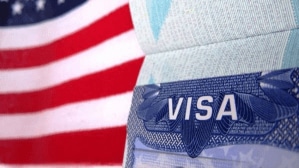-
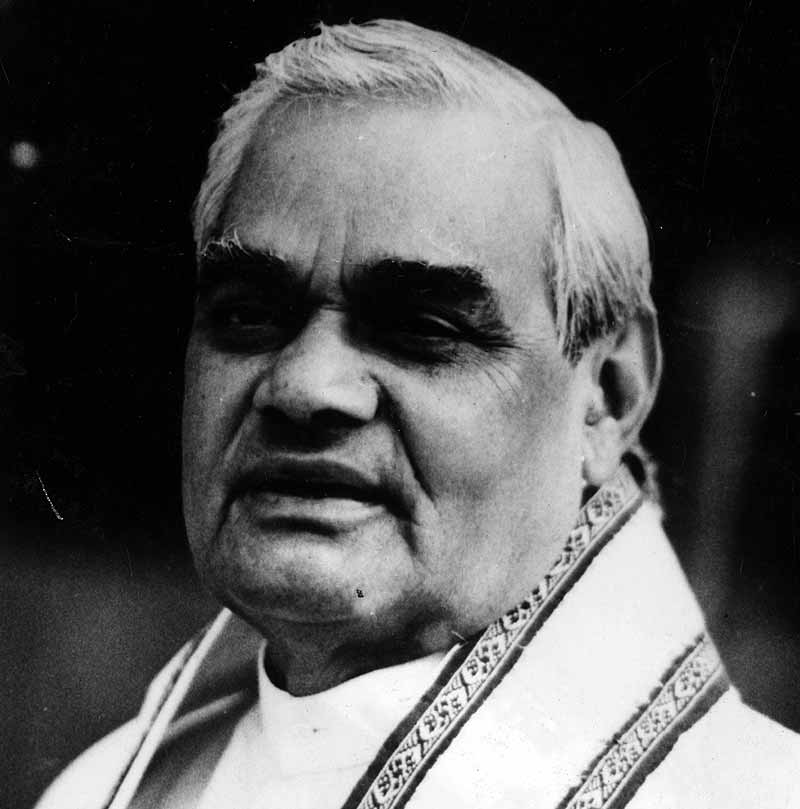
Atal Bihari Vajpayee was central to the formation and the subsequent rise to power of the country's second pan-India political party after the Congress, the Bharatiya Janata Party (BJP).<br><br>Not just that, his rule as the Prime Minister of India saw him tagged as reformer whose middle-of-the-road and pragmatic policies brought economic growth powered by an outstanding across-the-sectors performances. (Express Archive)
-
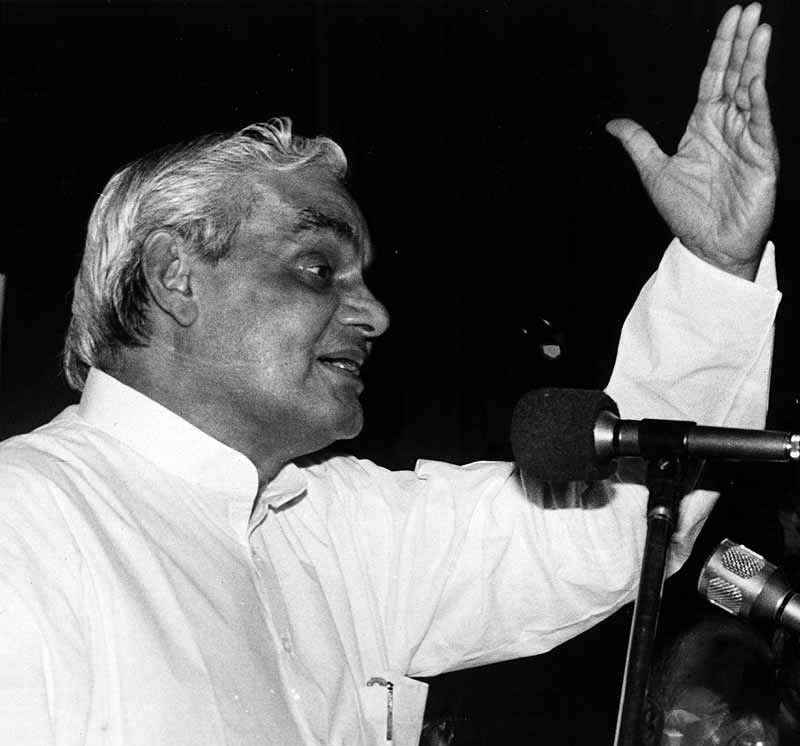
Born on December 25, 1924 at Gwalior, Madhya Pradesh to Krishna Bihari Vajpayee and Krishna Devi, Vajpayee, a high-caste Brahmin brought with him a long parliamentary experience spanning over five decades. He became a Member of Parliament for the first time in 1957.<br>Here is a glimpse of his journey:<br>1. Atal Bihari Vajpayee's involvement in politics began as a freedom-fighter during the Quit India Movement of 1942-1945. He started out as a Communist but shed that for membership in the RSS. While he played no major part in the Freedom struggle, as a teenager Vajpayee was jailed briefly for opposing British colonial rule. Surprisingly, he flirted with communism before choosing to support the Rashtriya Swayamsevak Sangh (RSS) and the Jan Sangh – both right-wing organisations that later developed close links with the BJP. Vajpayee became a close follower and aide to Shyama Prasad Mookerjee, founder of the Bharatiya Jana Sangh (BJS), BJP's predecessor. (Express Archive)
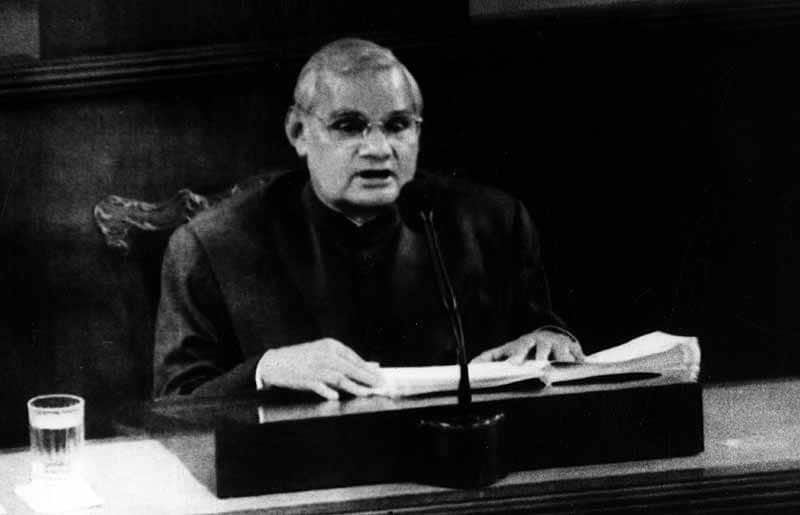
2. Atal Bihari Vajpayee won his first election to Parliament in 1957. As the leader of BJS, he expanded its political appeal, organization and agenda. In spite of his youth, he soon became a respected voice in the Opposition, even at time taking head-on then redoubtable Prime Minister Jawaharlal Nehru. His broad appeal brought respect, recognition and acceptance to a rising nationalist cultural movement. (Express Archive) -
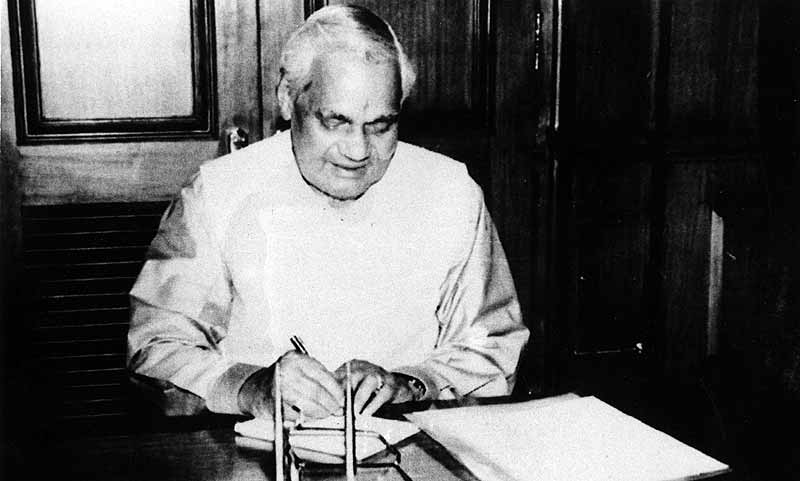
3. Atal Bihari Vajpayee was a statesman who was accepted by politicians across the spectrum of ideologies, and in the process he pulled the BJP away from being a virtual untouchable, due to its rightist leanings stemming from the demolition of the Babri masjid, to one that allies could do business with, that ultimately lead to the creation of the NDA. (Express Archive)
-
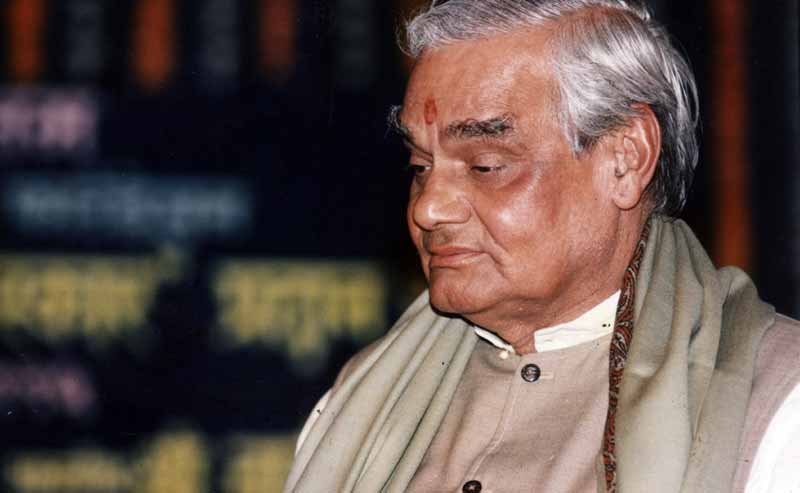
4. Atal Bihari Vajpayee became Prime Minister thrice – first in 1996 when he barely lasted for 13 days; the second stint was better starting from 1998 and lasting 13 months. And last, he was reelected in 1999 at the head of a more stable coalition that lasted its full 5-year term. (Express Archive)
-
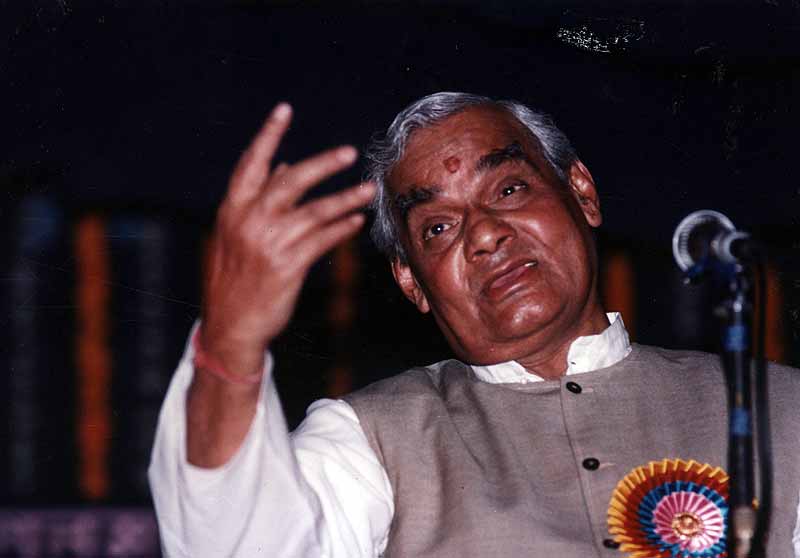
5. Atal Bihari Vajpayee's tenure as prime minister (1998-99) was characterised as one year of courage of conviction. It was during this period that India conducted a series of successive nuclear tests at Pokhran in May 1998. (Express Archive)
-
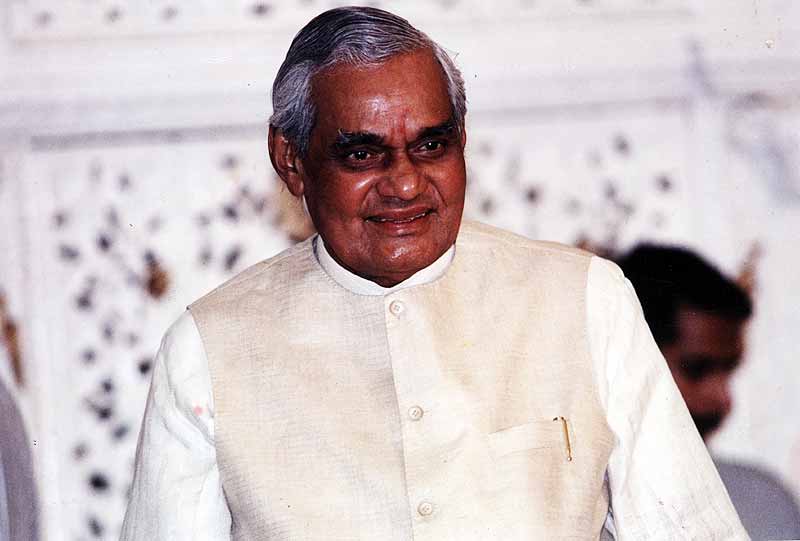
6. As PM, Atal Bihari Vajpayee took bold initiatives, the most notable being the attempt to bridge Indo-Pak differences for which he even travelled by a bus to Lahore putting his political future at stake for the sake of peace – the seeds of which were sown when he was foreign minister in the Morarji Desai government in the late seventies. (Express Archive)
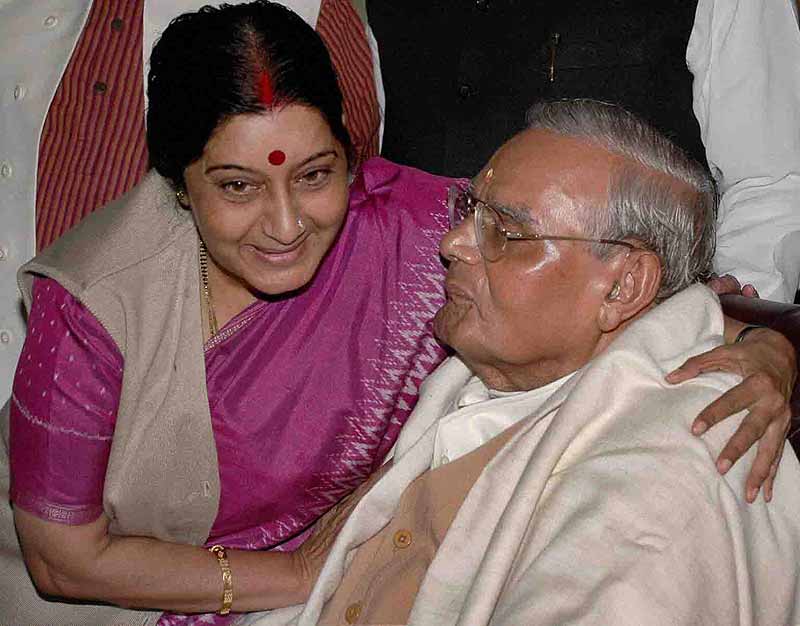
7. Atal Bihari Vajpayee, however, was not able to implement some policies close to his heart. Among them: scrapping of special status for Jammu and Kashmir, building a Hindu temple on the site of the mosque in Ayodhya and adopting a uniform civil code. (In pic) BJP leader Sushma Swaraj greets former Prime Minister and party veteran Atal Bihari Vajpayee on his 85th birthday, at latter's residence in New Delhi. (Express Archive) -
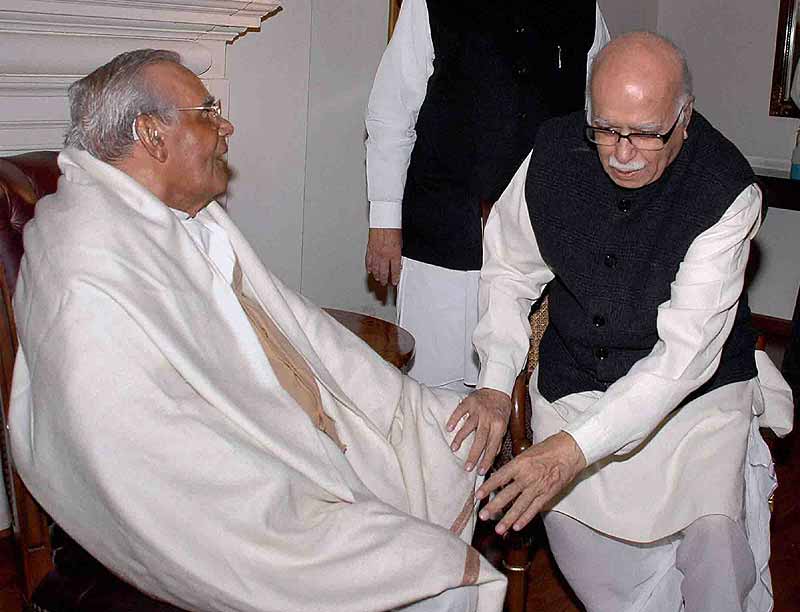
8. The demolition of Babri Masjid in Ayodhya by kar sewaks on December 6, 1992 when he was the Leader of Opposition in Lok Sabha was an acid test for Vajpayee – one where he ultimately stood steadfast on side of secularism. Vajpayee's trusted lieutenant L K Advani and most BJP politicians supported the demolition but Vajpayee condemned the attack unequivocally. (In pic) Senior BJP leader L K Advani greets former PM and party veteran Atal Bihari Vajpayee on his 85th birthday, at latter's residence in New Delhi. (Express Archive)
-
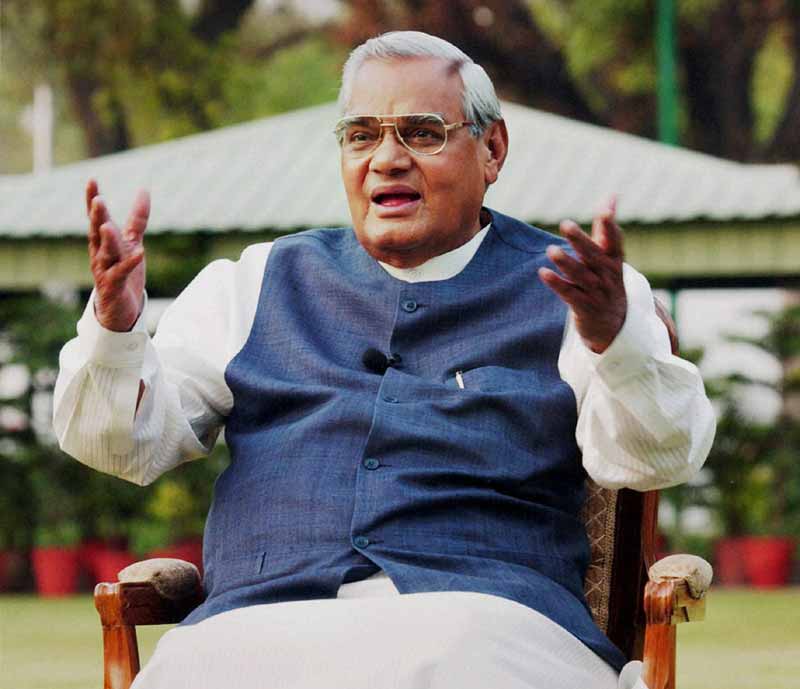
9. While his personal integrity has never been seriously questioned, the arms bribery scandals exposed corruption in his government and at times cast doubts on his judgement. (PTI)
-
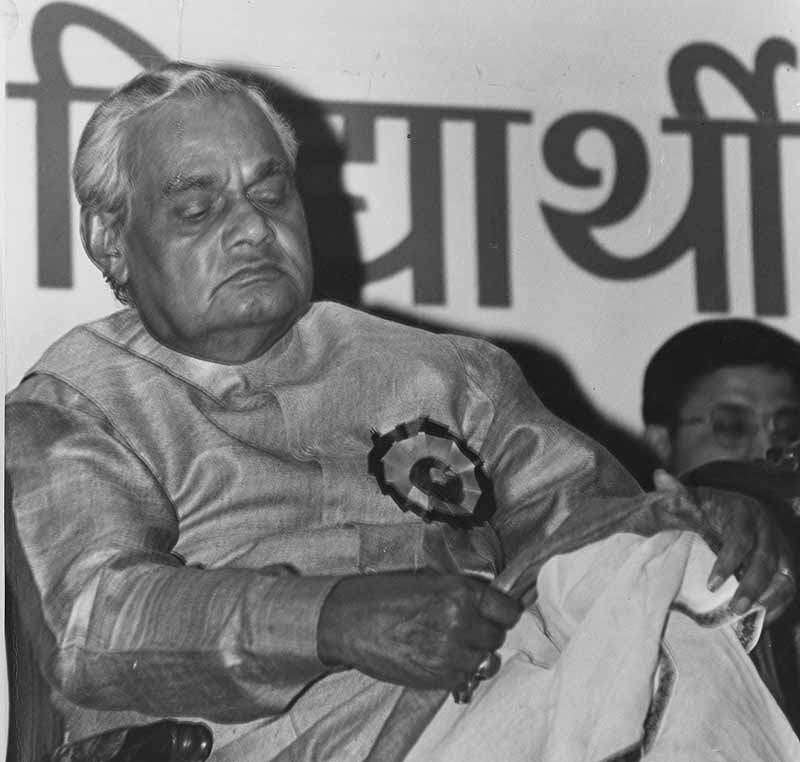
10. Among his biggest economic achievements were the National Highway Development Project, Pradhan Mantri Gram Sadak Yojana, Sarva Shiksha Abhiyan and telecom sector. His ability to carry the states on economic matters boosted his reforms initiatives further. (Express Archive)
-
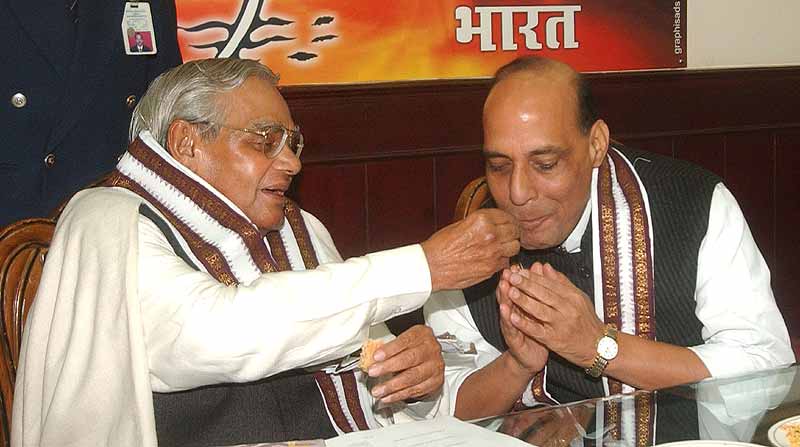
11. With the 1998-99 global financial crisis in full swing, Vajpayee's govt managed to boost India's economic growth rate to 5.8 pct, which was higher than previous year's. His prime ministership was also marked by a bold disinvestment agenda, which he carried out despite the attack by the Opposition and trade unions. His economic bent was towards allowing private business greater freedom to boost India's overall growth. (Express Archive)

‘I sit 9–5 doing nothing’: Indian worker in UAE says he’s ‘invisible’ at job, left out of WhatsApp groups and team culture
